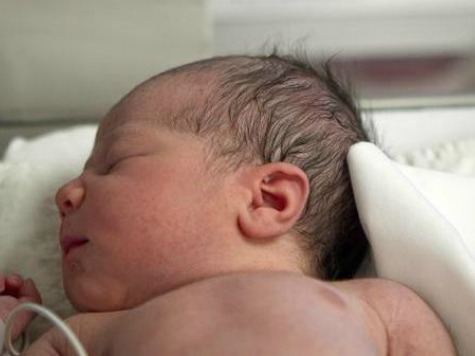
Science is always pushing the envelope to see what it can create, but babies with three parents? That is what a recent report out of Britain claims. Soon babies with the DNA of one man and the donor eggs of two women might be on the horizon.
A report at the Daily Mail says that a baby with three parents could be born as early as 2015 after a “landmark decision” by British authorities to allow a “controversial genetic treatment.”
While the genetic experiments are quite controversial and raise fears of “designer babies,” others feel that many ailments, diseases, and hereditary genetic disorders could be cured and that babies could be born with a level of assurances that they would be healthy.
The techniques, the Daily Mail reports, would take the egg from one mother, inject it with DNA from a second woman and fertilize it with a man’s sperm. “The resulting healthy child,” the Mail reports “would effectively have two mothers and a father.”
The British Government’s chief medical officer, Professor Dame Sally Davies, claims that the procedure does not materially alter the genetic traits that would be passed on from the original donor egg and likened the introduction of genetic material from the second female egg to a changing of a “battery pack” in an electronic gadget.
“Scientists have developed ground-breaking new procedures which could stop these diseases being passed on, bringing hope to many families seeking to prevent their future children inheriting them,” Professor Dame Davies said in a statement.
Critics are much less blithe about the experiments, saying that this opens a dangerous new door to genetically manufactured humans.
Josephine Quintavalle, from the group Comment on Reproductive Ethics, is criticizing the move. For one, Quintavalle criticizes the government’s decision of how the procedure is being sold to the public. It is, Quintavalle, says, being “presented simply as innovative genetic treatment when it is in effect an endorsement of highly contentious germ line modification of the human embryo.”
Quintavalle hoped that the government could be persuaded to cancel the approval of the process.
Leon R. Kass, the former head of George W. Bush’s Council on Bioethics, advocates putting the brakes on this rush to scientific experimentation for what it might do to our sense of “us.”
“The most fundamental challenge posed by the brave new biology,” Kass wrote in his 2002 book Life, Liberty, and the Defense of Dignity: The Challenge for Bioethics, “comes… from the underlying scientific thought. In order effectively to serve the needs of human life, modern biology reconstructed the nature of the organic body, representing it not as something animated, purposive and striving, but as dead matter-in-motion.”
Kass continued, “This reductive science has given us enormous power, but it offers no standards to guide its use. Worse, it challenges our self-understanding as creatures of dignity, rendering us incapable of recognizing

COMMENTS
Please let us know if you're having issues with commenting.